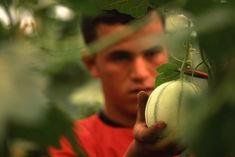
The European Parliament agreed last week to liberalise EU-Morocco trade in agricultural products as well as adopting a resolution highlighting concerns.
The votes - 369 votes in favour, 225 against and 31 abstentions - follow approval to allow Morocco to participate in certain EU programmes.
Under the deal, quotas for zero or low duty imports have increased.
The agreement will immediately reduce or remove 55 per cent of tariffs on Morocco’s agricultural products (up from 33 per cent) and 70 per cent of tariffs on EU agricultural and fisheries products within 10 years (rising from one per cent).
Spanish grower groups have been harshly critical of the deal despite supporters’ attempts to portray it as a boost to EU-Morocco ties and in support of the transition to democracy following the Arab Spring saying it will help alleviate economic, migratory and security problems.
They argue that the agreement includes safeguards, for example by allowing only moderate increases to quotas of tomatoes, strawberries, cucumbers and garlic. The deal also provides for seasonal quotas to counter distortion of the EU market and stipulates that Moroccan imports must meet European plant-health and food-safety standards.
Moroccan farm minister Aziz Akhannouch welcomed the deal. “We are satisfied with the results…. It is a win-win situation.”
But Spanish growers are less than convinced. The Coag union issued a statement saying it would contest the agreement at the European Court of Justice on environmental and labour law grounds.
"We will not stand idly by while the EU abandons Spanish fruit and vegetable farmers to their fate while allowing the uncontrolled entry of Moroccan produce grown at starvation wages," a spokesman for the union said.
The accompanying resolution adopted by MEPs requests an assessment of the impact on European producers and farmers’ incomes.



